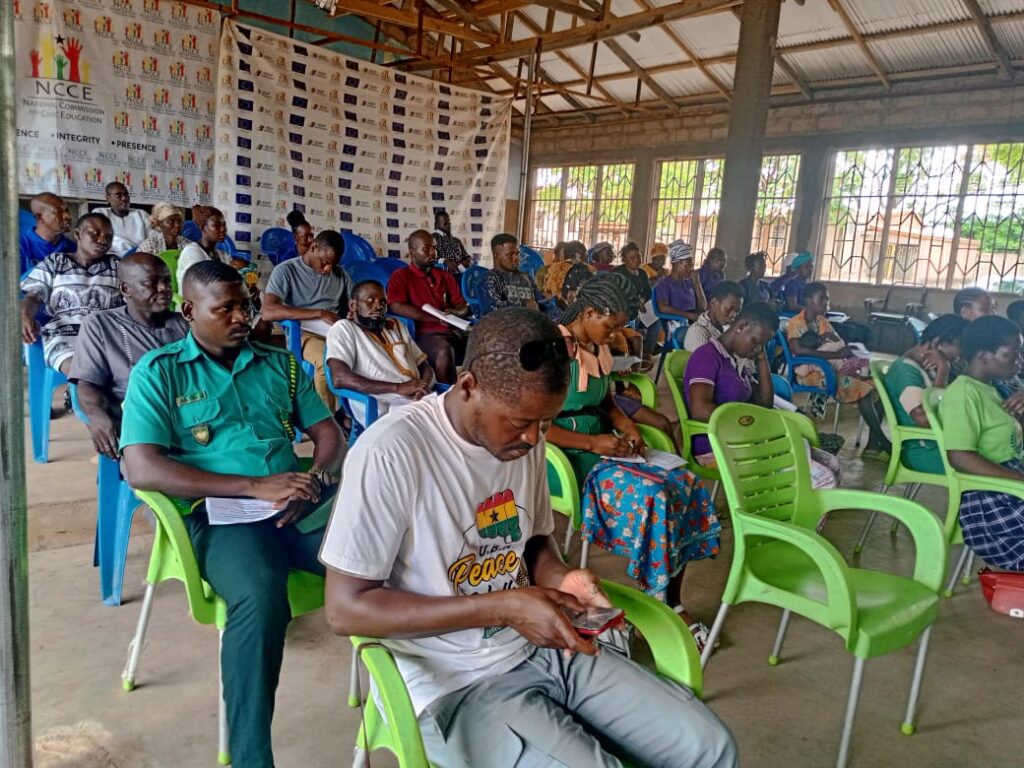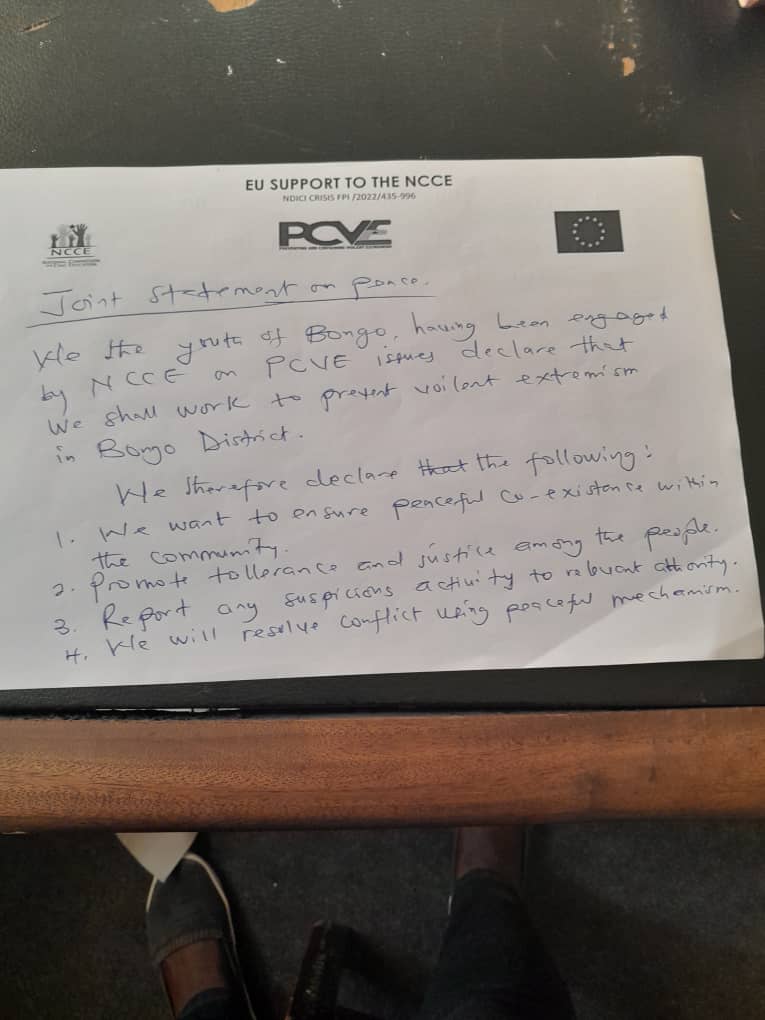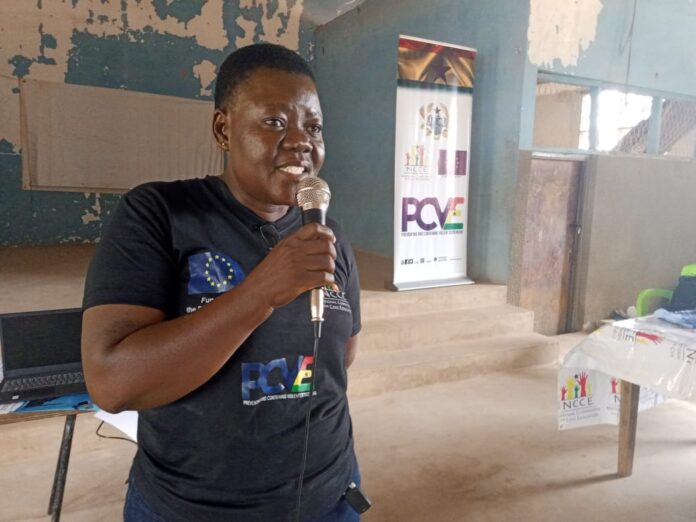The Bongo District Director of the National Commission for Civic Education (NCCE), Alice Ndego Adimazoya, is raising concern about how unresolved chieftaincy, land, and herdsmen-related disputes in the district and the Upper East Region leaves the region exposed to the activities of extremists.
She narrates that violent extremists will often study the prevailing conditions in the target areas and use that to their advantage leading to some attacks in certain areas.
The threats of extremist activities have become a matter of concern for authorities in Ghana as such activities have the potential of spilling over.
To successfully ward off extremists, state and non-state agencies including the NCCE are leading a series of engagements at all levels to whip up the interest of the public in safeguarding their respective communities and reporting the suspicious movement of people to the appropriate authorities.
It is on the score that NCCE in collaboration with the European Union, on Tuesday, June 27, 2023, engaged various youth groups in the Bongo District on preventing and containing violent extremism.
The engagement had presentations focused on the need to improve community surveillance, awareness creation at workshop centers, possible signs of radicalization, and steps to take in the case of a possible attack.
It is on this score that Mrs. Adimazoya is hoping that disputes involving land, chieftaincy, and headsmen will be resolved in order not to expose the district, region, and country further.
“You see, the extremists, they look for an opportunity to penetrate into the country. So if we are not careful with the disturbances that we have, for example, the Bawku issue for instance, the extremists can pass through the issue and then enter Ghana. You know the extremist groups; they are human beings like us. You cannot easily identify them.
They are human beings like us. So they get the opportunity to capitalize on places that they there are wars, conflict, and places where there is confusion so that they will use that opportunity to get into the country they target they mostly target the youth because the youth are vulnerable and you know the way the youth are, they are looking for jobs and if you promise them a job, they will not try to find out what kind of job you are going to give them because they are looking for money and we don’t discriminate money.
All money is money. Well, whatever you do to get the money, they will do.” She stressed.

The Upper East Regional Enforcement Officer of the Ghana Immigration Service, Assistant Superintendent of Immigration (ASI), Michael Billson Awarajah, urged the participants to improve community surveillance, and report suspicious characters adding, homeowners should be mindful of the persons they rent their homes to.
At the end of the engagement, the various youth groups resolved to help improve surveillance in their respective communities and equally report suspicious characters to the security agencies.





